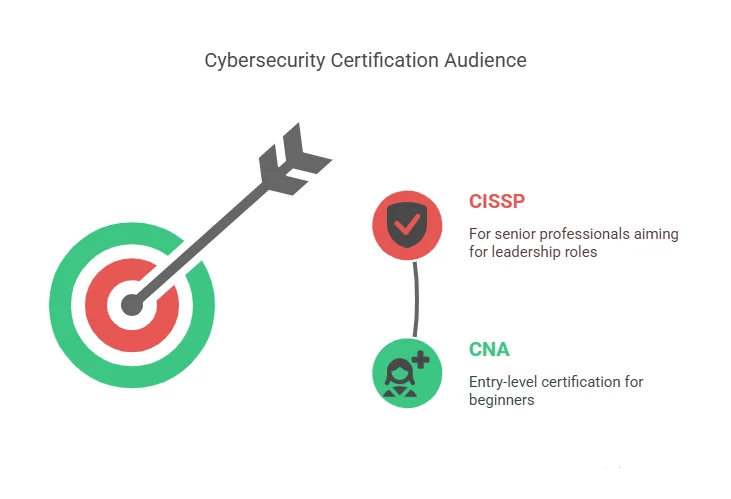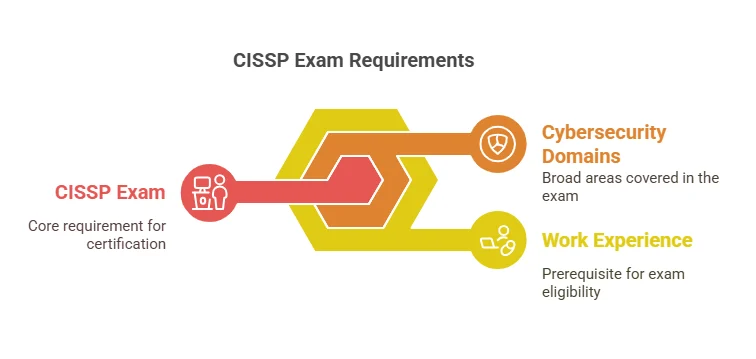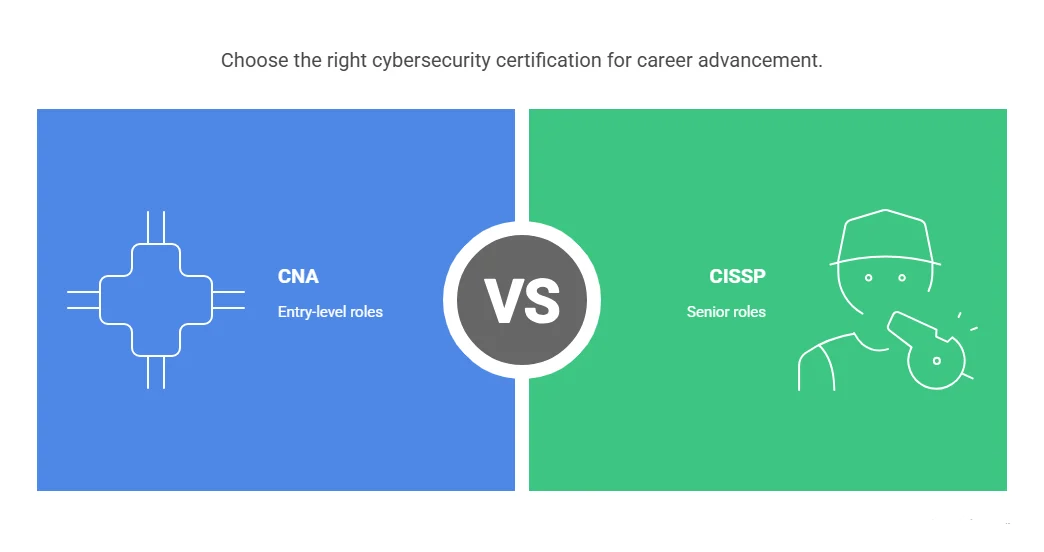Choosing the right cybersecurity certification can be pivotal in shaping your career path. Two of the most recognized certifications in the industry are the Certified Network Associate (CNA) and the Certified Information Systems Security Professional (CISSP). Each serves different purposes, targets different audiences, and opens distinct career opportunities. This comprehensive guide will help you understand the differences between CNA and CISSP certifications to make an informed decision aligned with your goals.
Introduction to CNA Certification
The CNA certification is an entry-level credential designed to validate foundational skills in cybersecurity and networking. It is ideal for individuals starting their careers in IT or cybersecurity, focusing on essential concepts such as network security basics, threat identification, and fundamental defensive measures. The CNA certification helps candidates build a solid technical base and gain practical skills needed to protect networks and systems from common cyber threats.
Related Blog: How to Get CNA Certification in Cyber Security
Introduction to CISSP Certification
The CISSP certification is a globally recognized advanced-level credential aimed at experienced cybersecurity professionals. It covers a broad spectrum of security domains, including governance, risk management, asset security, and security operations. CISSP is widely regarded as a benchmark for senior roles in cybersecurity and demonstrates a candidate’s ability to design, implement, and manage comprehensive security programs across enterprises.
Comparison of Scope
The CNA certification is more technical and narrowly focused on core cybersecurity fundamentals, while CISSP covers strategic, managerial, and technical aspects of security at an enterprise scale.
Target Audience
- CNA: Best suited for beginners, recent graduates, or IT professionals transitioning into cybersecurity. It requires little to no prior work experience, making it accessible for those new to the field.
- CISSP: Designed for seasoned cybersecurity professionals with a minimum of five years of paid work experience in at least two of the eight CISSP domains. It targets those seeking senior or managerial positions in cybersecurity.

Exam Difficulty and Requirements
- CNA Exam:
-
-
- Lower entry barriers with no formal prerequisites.
- Exam focuses on foundational knowledge and practical skills.
- Less complex and shorter in duration compared to CISSP.
-
- CISSP Exam:
-
- Requires at least five years of relevant work experience.
- Exam is extensive, covering eight broad domains of cybersecurity.
- Known for its difficulty and depth, demanding thorough preparation and experience.

Cost Differences Career Opportunities
- CNA:
-
-
- Suitable for entry-level roles such as network technician, junior security analyst, or IT support specialist.
- Provides a stepping stone into the cybersecurity field.
-
- CISSP:
-
- Opens doors to senior roles like security manager, chief information security officer (CISO), security consultant, and risk analyst.
- Recognized across industries as a mark of cybersecurity expertise and leadership.
Related Blog: How CNA Certification Can Boost Your Cyber Security Career and Salary Potential

Salary Expectations
- CNA-certified professionals: Typically earn entry to mid-level salaries in cybersecurity and network administration roles, which vary widely by location and experience but generally range from $50,000 to $80,000 annually.
- CISSP-certified professionals: Command significantly higher salaries, often exceeding $100,000 annually, with senior roles reaching $150,000 or more depending on experience and job responsibilities.
Which One to Choose?
Your choice between CNA and CISSP should depend on your current experience level, career goals, and the time you can invest in preparation:
- Choose CNA if you are new to cybersecurity, want to build foundational skills, and seek entry-level positions in network security or IT.
- Opt for CISSP if you have several years of cybersecurity experience, aim for leadership roles, and want to demonstrate comprehensive expertise in enterprise security management.
Both certifications are valuable but serve different stages in a cybersecurity career path.
Conclusion
Selecting the right cybersecurity certification is crucial for your career trajectory. The CNA certification offers a practical foundation for newcomers, while the CISSP credential represents a prestigious benchmark for experienced professionals aspiring to senior roles. Assess your current skills, career ambitions, and resources to decide which certification aligns best with your goals. With dedication and the right preparation, either certification can significantly enhance your professional prospects in 2025 and beyond. For expert guidance and comprehensive support on your certification journey, trust ACSMI to help you achieve your cybersecurity career goals.
FAQs
- What experience do I need before taking the CISSP exam?
You need at least five years of cumulative, paid work experience in two or more of the eight CISSP domains. - Can I take the CNA exam without prior IT experience?
Yes, CNA is designed for beginners and does not require formal prerequisites. - How long does it take to prepare for the CISSP exam?
Preparation typically takes several months due to the exam’s breadth and depth, depending on your background. - Which certification offers better salary prospects?
CISSP-certified professionals generally earn higher salaries due to the advanced nature of the certification and roles it qualifies for. - Is CISSP recognized globally?
Yes, CISSP is widely recognized internationally as a leading cybersecurity certification.

Leave a Reply